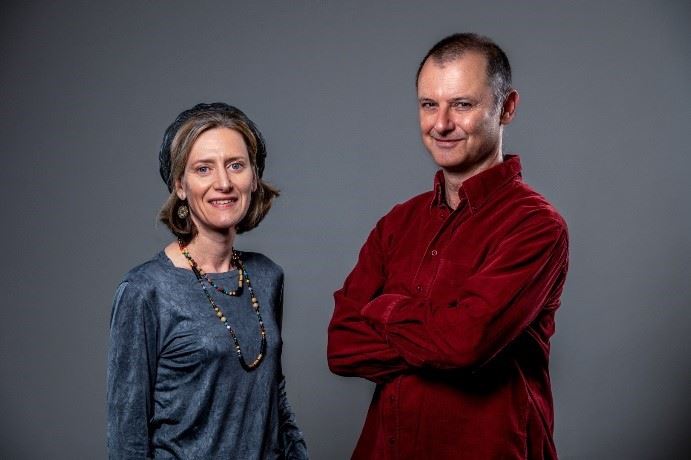IN A DIVIDED ISRAEL, WE’RE LEARNING HOW TO ARGUE BETTER
There is a well-known wisecrack in Israel, that everyone argues passionately because we all think we should be Prime Minister. For anyone who has spent time here, the vehemence is palpable, especially lately. As tensions in Israel continue to rise due to the proposed judicial reforms, the nation is growing more and more divided. With elections on the horizon in the United States, there too, the polarities that exist between citizens feel greater than ever.
In this increasingly tense environment, two educator-researchers are actually encouraging people to argue. Yes, you’ve read that correctly: Abi Dauber Sterne and Robbie Gringras are actively teaching people to argue. Moreover, their experience is showing that professionals in all sectors are finding it more and more difficult to address the situation in a constructive way.
Dauber Sterne and Gringras have dedicated the past few years of their careers to training educators and organizational leaders to engage in arguments about contentious issues relating to Israel. Unlike most of us who shy away from confrontation, they see argument as an important and valuable tool not only for mutual understanding, but also to understand more clearly the issues at hand.
Last year, with financial support from The Jim Joseph Foundation, Gringras and Dauber Sterne launched “For the Sake of Argument”, an educational initiative that offers a fresh approach to arguing. To date, they have run training sessions for over 2,000 people around the globe, a mixture of organizational leaders, educators and students. They use fictional, reality-based “argument-stories” to facilitate difficult conversations using tools for healthy confrontations.
They also published a book entitled Stories for the Sake of Argument which features short stories and questions designed to guide groups discussions about some of the most controversial issues facing Israel today. They continue to email a new story to their followers on a monthly basis to keep the content timely. Recently, stories have focused on the proposed judicial reform and its opponents in Israel. With people around the world trying to understand what all the fuss is about, the new stories help to explain – in a non-pedantic way – what the different approaches may be to aspects of the proposed changes.

“What we’re seeing is that when these conversations are not conducted well, these issues have the potential to break apart the fabric of organizational life and tear apart communities,” Dauber Sterne says. “Our hope is that the story itself will be a facilitator because it’s one step removed. It serves as a buffer in a way and gets us to ask ourselves how the issue plays into our ideological stance,” she explains.
The two colleagues are also in the midst of conducting research on the use of argument. As they create their content, they’re also developing metrics to see which tools work best.
“It may seem ironic, but the more we advocate that argument can be a useful tool, the less tension there will be because people will understand each other more,” says Gringras. “We’re learning so much about the use of argument that want to share what we’ve learned with the world, starting in Israel and amongst Jewish organizations.”
While most of their training sessions have been conducted amongst English-speaking groups from outside of Israel, more Israel-based groups have turned to them recently for workshops.
“Professionals in every sphere, whether they’re teachers or managers in an organization, are finding it more and more difficult to address the situation in a constructive way. They feel that they’re personally and emotionally invested. We have tools that can help them untangle some of the complexity,” says Gringras.
To be sure, Dauber Sterne and Gringras are not starry-eyed. “It doesn’t solve the problem, but it does help create perspective,” Dauber Sterne explains. “We are trying to help people understand how others come to their decisions so that they can learn from each other. It’s vital that we all take an active role in understanding other people’s views in order to hone our own, and to be able to engage more deeply with the subject matter, whether history, culture, or modern-day politics.”
For more information on these workshops and to receive new stories monthly, see https://www.forthesakeofargument.org/.
For all media inquiries, contact: Yehudit Singer-Freud, Yehudit@SingerPublicity.com.
